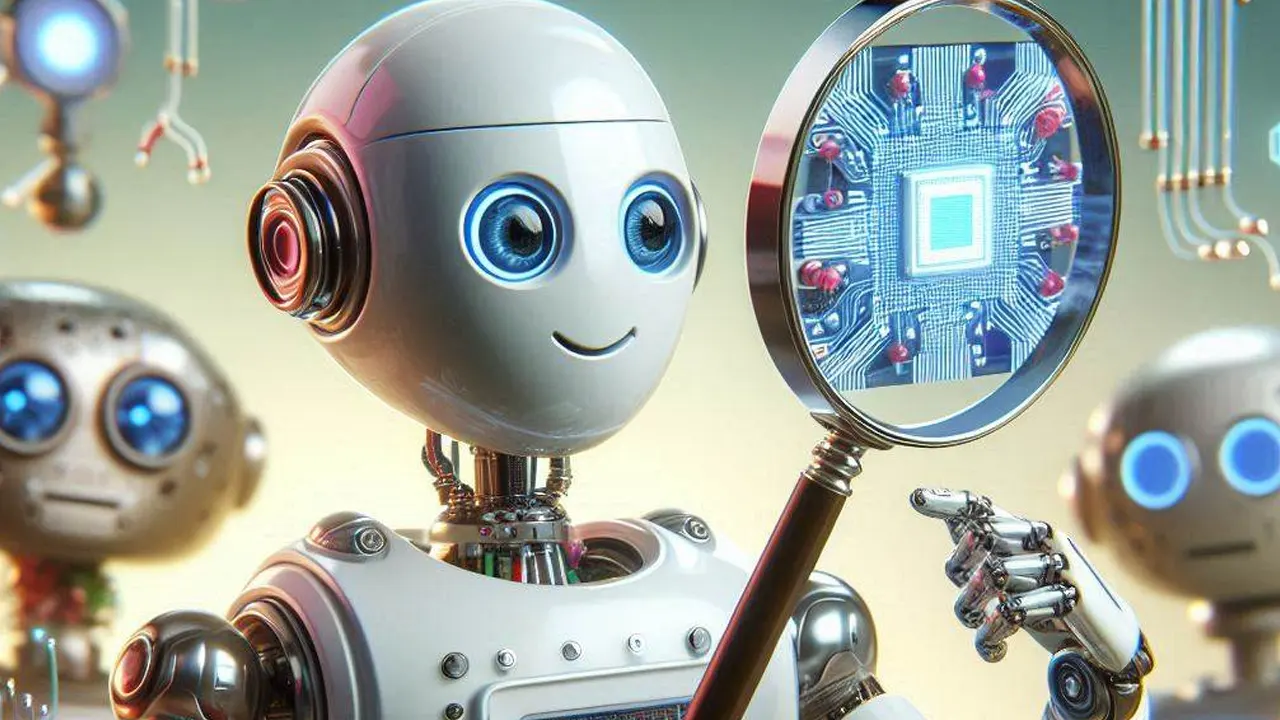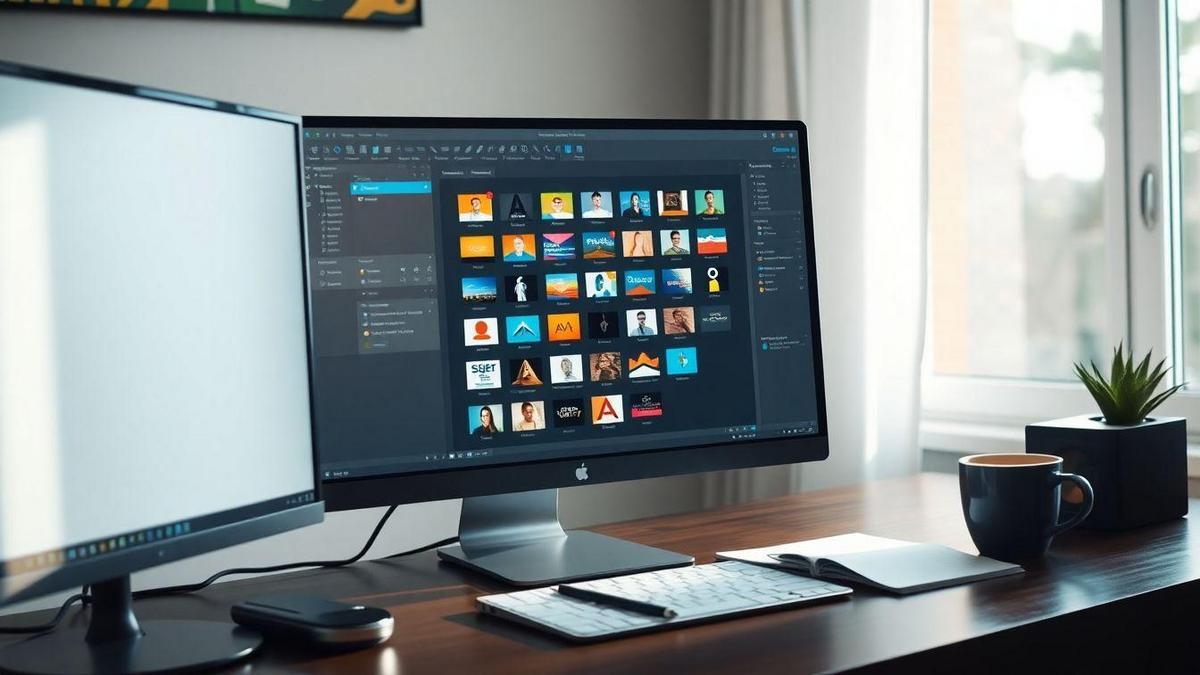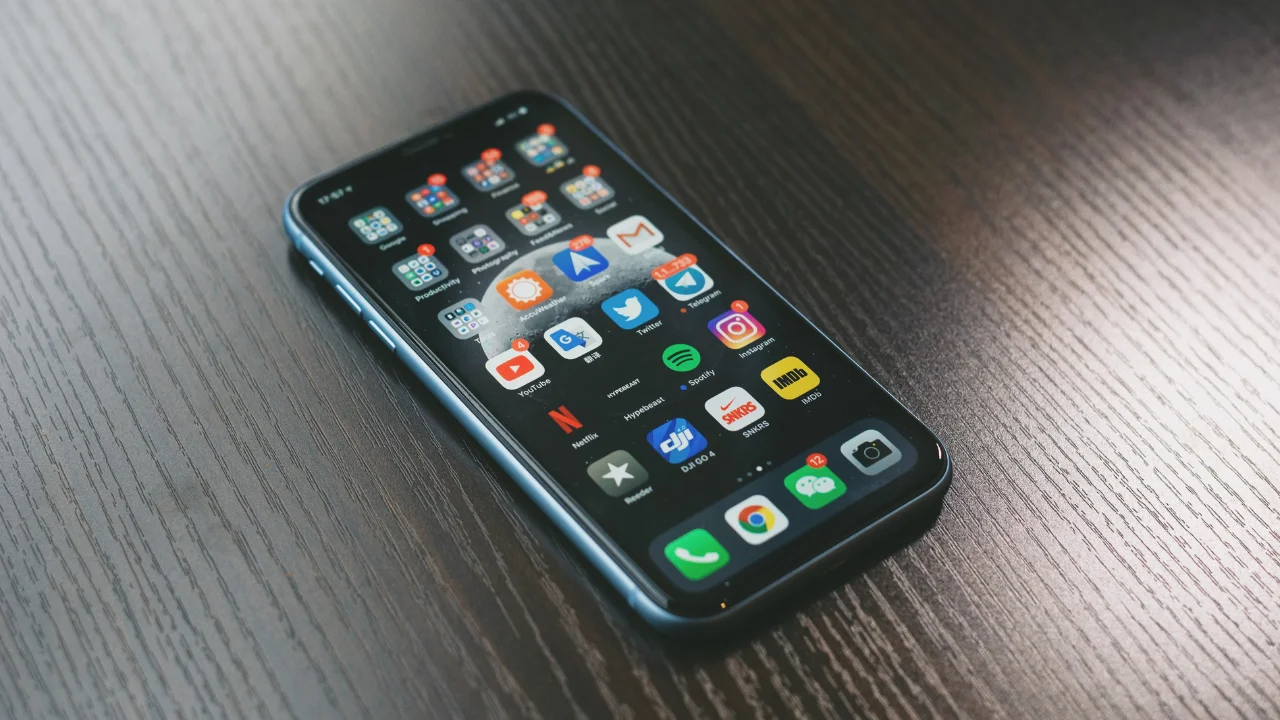Music creation is becoming increasingly accessible thanks to artificial intelligence tools. With the help of AI, anyone can create original music in a variety of styles and genres, without needing advanced knowledge of composition. This opens up a whole new universe of possibilities for musicians, producers and even those who want to try something new.
Some platforms such as Loudly e Canva offer the creation of personalized music in a simple and fast way. These tools allow you to adjust the genre and duration of the song, giving you an almost instant result.
The emergence of AI-assisted music
In the emergence of AI-assisted music, the combination of advanced algorithms and human creativity has transformed the way music is composed and produced. From its experimental origins to the sophisticated applications available today, AI-generated music has come a long way.
History and Evolution

The use of artificial intelligence in music began in the 1950s. Composers began exploring algorithms to create melodies. An important milestone was the first musical composition software developed by computer scientist Lejaren Hiller, who used AI to write a classical piece.
In the 1990s and 2000s, technology advanced. Software tools such as Auto-Tune began to use AI to adjust and improve vocal quality. The evolution continued with the emergence of Machine Learning, where systems learned on their own from large volumes of musical data.
Today, there are several AI tools for music composition, from AI to generate ambient music to complete music production platforms. The capabilities of these tools continue to grow, allowing for greater customization and creativity.
Current State of the Technology
Today, AI technology in music is more accessible and advanced than ever. Platforms like Suno AI automatically create music with high quality.
Tools like Boomy AI allow beginners to create original music quickly.
Popular AI apps for music include:
- Loudly
- Boomy AI
- Suno AI
These technologies help composers save time and expand their creative capabilities. Even without previous experience, anyone can explore music creation with AI. The trend is for these tools to become even more integrated and intuitive, further democratizing the music composition process.
How AI is Transforming Music Creation
Artificial intelligence is radically changing how music is composed and produced. It enables the automation of complex processes, the personalization of unique musical experiences and collaboration between humans and machines.
Automated composition and production
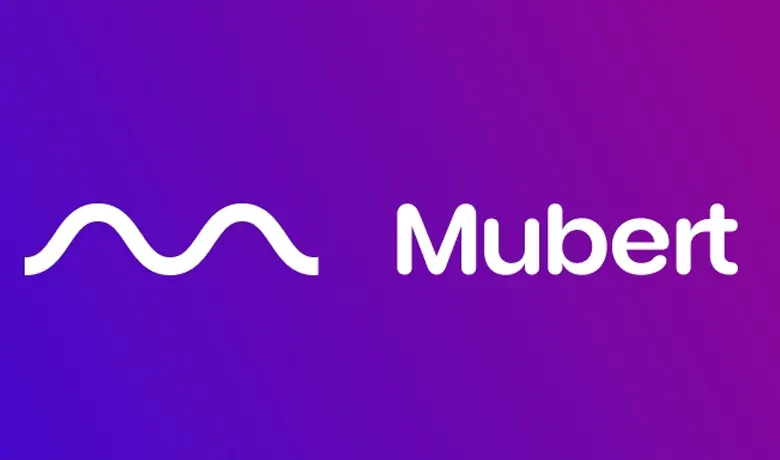
A AI can automate music creation in ways that were previously unimaginable. Platforms such as Mubert AI use millions of musical fragments to compose new songs. This saves time and allows musicians to concentrate on other creative aspects.
AI tools can create melodies, harmonies and rhythms with high precision. This is possible through algorithms that learn musical patterns from large databases. These technologies are useful for independent musicians who don't have access to large production resources.
AI applications can also help with the mixing and mastering of tracks. This results in a final product that is often indistinguishable from the work of an experienced sound engineer.
Personalizing Musical Experiences
Another great advantage of AI in music is personalization. With the ability to analyze musical tastes, AI tools can create extremely precise playlists and recommendations. This is possible through the use of algorithms that monitor and learn user preferences.
AI systems can also generate personalized music based on specific user inputs. For example, a user can describe the type of mood they want in a song, and the AI will compose a track that meets those specifications. This leads to a more engaging and personalized listening experience.
What's more, streaming services are using AI to recommend music. Companies like Spotify use these technologies to increase user engagement and satisfaction.
Collaboration between Humans and Artificial Intelligence
Artificial intelligence doesn't replace human talent; it complements it. Musicians are discovering new ways of collaborate with AI to expand their creative capacities.
Artists can use AI algorithms to generate ideas that are refined manually. This can include creating basic melodies that are then modified by the artist to add a personal touch. Collaboration with AI allows for a more efficient and creative workflow.
What's more, AI allows musicians with no technical training to produce high-quality music. Intuitive tools and user-friendly interfaces make it possible for anyone to create music professionally, democratizing the creative process.
Top Music Apps with AI
This section takes a detailed look at five leading Artificial Intelligence-powered music apps that make it easier to music creation. Each tool offers something unique, from generating complete melodies to creating personalized harmonies and rhythms.
AIVA
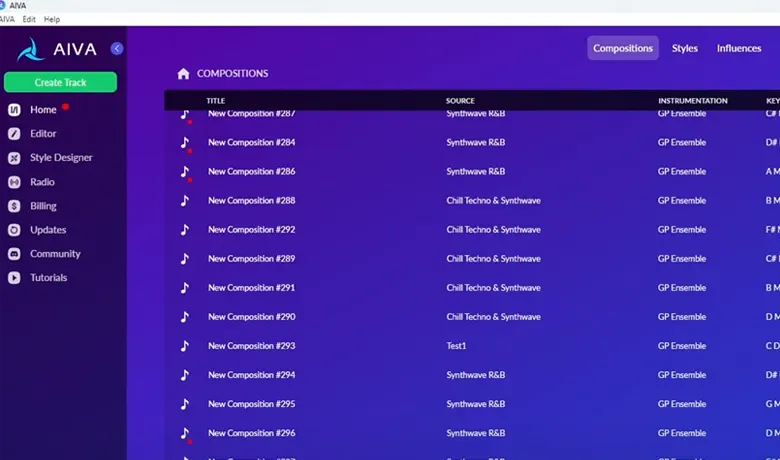
O AIVA (Artificial Intelligence Virtual Artist) is a composer of classical and modern music. This app is famous for its sophisticated compositions, which are of high quality and can be used in a variety of situations, from movie soundtracks to relaxation music.
AIVA allows users to choose the style of music, which can include classical, jazz, pop or even epic soundtracks. It's an excellent tool for composers who need quick inspiration. The application also allows compositions to be customized, offering greater flexibility in music creation.
Endel
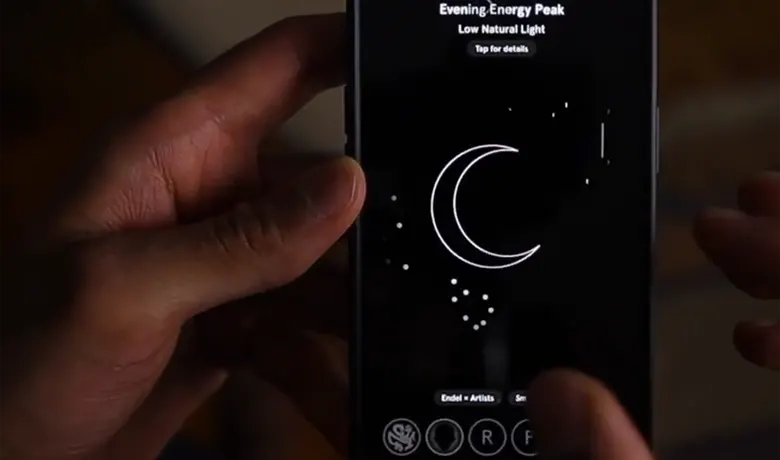
Endel focuses on creating sounds and music to help with concentration, relaxation and sleep. This app uses personal data such as location, time of day and weather to generate a personalized soundtrack.
Endel is especially useful for those looking to improve their well-being through ambient sounds. It adjusts the frequencies and rhythms of the music to promote specific mental states, such as productivity or relaxation. Ideal for use during work, study or meditation, Endel offers an innovative way of using music to influence mood and productivity.
IBM Watson Beat
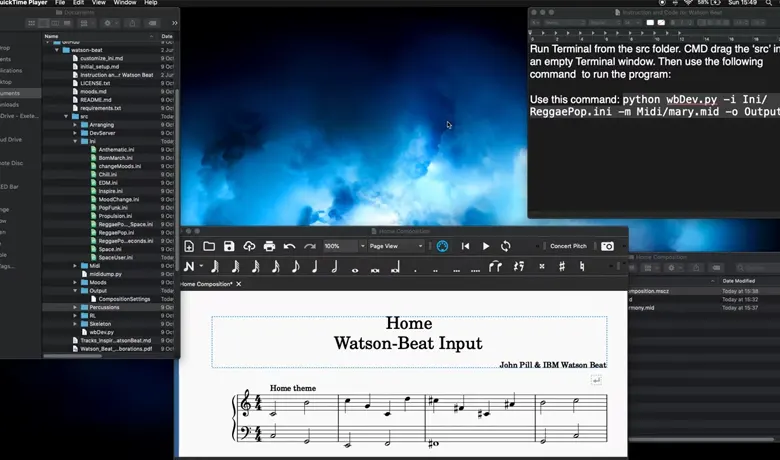
O IBM Watson Beat is a tool that uses AI to help create music, focusing on emotions and feelings. This app allows users to choose certain emotions and creates music that reflects those emotional states.
Watson Beat is ideal for composers who want to explore new ideas and emotions in their music. It offers a wide range of customizable options, from rhythms to instrumentation. The flexibility and depth of this tool make it useful for both personal and professional projects.
LANDR
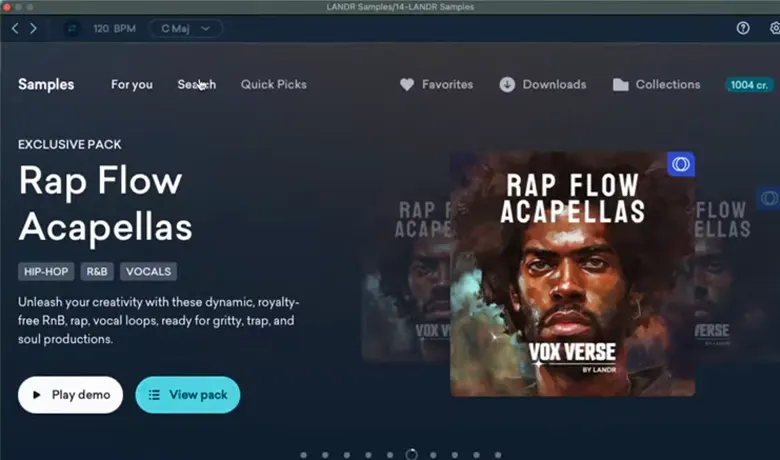
LANDR is known for its AI-assisted mixing and mastering services. The user can send a track to the platform, and the AI automatically adjusts the sound levels, equalization and other technical aspects.
The user-friendly interface allows even beginners to enjoy the benefits of the software. An important feature is the sample library, which provides a wide range of high-quality sounds and loops. Newly launched, the collaboration section also allows musicians to work together in real time, which is an advantage for team projects.
Another of LANDR's strengths is its support for various music distribution platforms, making it easy to publish tracks on services such as Spotify and Apple Music.
Benefits and Challenges
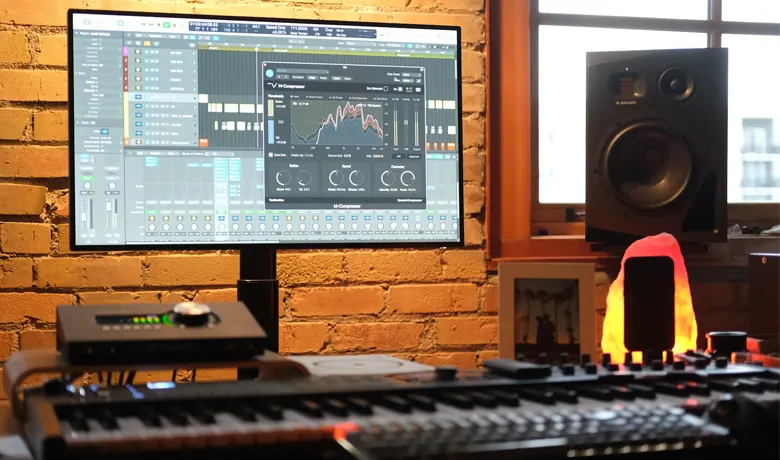
The use of artificial intelligence (AI) to create music brings advantages such as increased creativity and greater accessibility. However, it also raises ethical and intellectual property issues that cannot be ignored.
Expanding Creativity
AI can act as a powerful tool to expand the creativity of musicians. With the ability to process thousands of different songs and styles, these technologies can inspire new sounds and ideas that might never be explored by humans alone.
Using software like AIVA allows you to create complex melodies quickly. AI can simulate the styles of great composers or create new, unique styles, making it an ideal companion for composers in search of innovation.
Accessibility and Democratization
AI democratizes music production by enabling anyone, regardless of their experience, to create music. Affordable tools such as Boomy make it possible to create soundtracks without the need for expensive equipment or specialized training.
These apps make the composition process more inclusive, giving opportunities to emerging talents. The popularization of these technologies is changing the music scene, allowing more voices to be heard and exploring a greater diversity of genres and styles.
Ethical Issues and Intellectual Property
Despite the benefits, the use of AI in music raises important ethical questions, especially in relation to intellectual property. AI algorithms learn from existing works, which can lead to disputes over who owns the rights to new creations.
In addition, using AI-generated music without proper authorization can lead to legal conflicts. Teaching an AI using copyrighted material requires legal care, and institutions should ensure that their practices are transparent to avoid unnecessary litigation.
Future of Music Creation with AI

Music creation with artificial intelligence (AI) is evolving rapidly. New trends are emerging, and there are many expectations about what the future holds for this technology. Here are some important points to watch out for.
Emerging Trends
Several advances in AI are transforming the way music is created. One trend is the creation of royalty-free music using platforms such as Mubert AI, which uses a vast database of musical samples. In addition, personalization is an important trend. Users can now choose the genre and style of music they want to create.
Another trend is the integration of AI into music studios. Intelligent software is being incorporated into musical instruments and mixing programs. This facilitates the creation of complex compositions and allows musicians to experiment with new sounds quickly. This technology is also expected to facilitate collaboration between artists from different parts of the world.
Conclusion
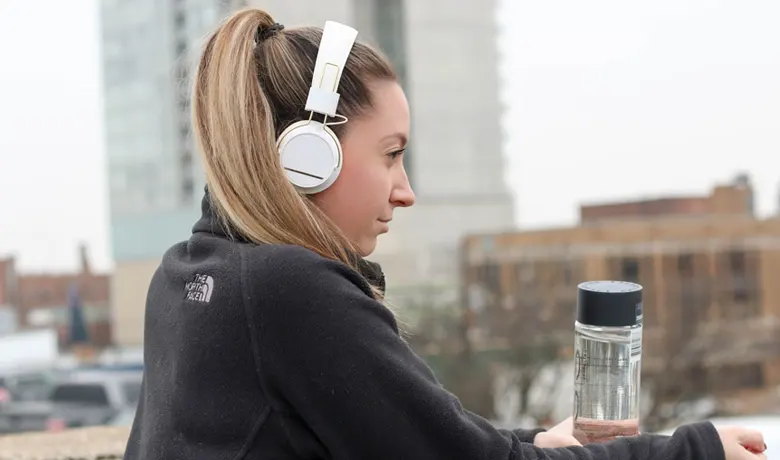
In the future, AI could create music completely autonomously. Experts predict that the quality of AI compositions will approach, and perhaps surpass, that of human compositions. This could drastically change the music industry, bringing new ways of creating and consuming music.
There are also high hopes for the use of AI to create personalized music in real time for various situations, such as customized soundtracks for video games or ambient music adjusted to the listener's mood. Platforms such as Soundraw already offer a glimpse of this.
The accessibility of AI tools will also increase, allowing anyone to create music, regardless of their musical knowledge. This democratizes music creation, allowing new emerging talents to show their skills to the world.
Did you like this article? Leave us a comment if we've missed any apps in our list. Also check out our article where we reveal a app that finds out what music is playing! We're sure you'll enjoy this content. We've also included a video below where we've added more information about the world of AI and music production for you to watch if you're curious.
Frequently Asked Questions
Artificial intelligence applications help users create music quickly and easily. Many apps offer features such as text-based composition and lyrics generation.
What are the best free apps for creating music using AI?
Some of the best free apps include Loudly, where you can choose the genre and length of the song. There's also Canva, which lets you create music for videos and social media.
How can I create lyrics using artificial intelligence?
To create lyrics with AI, platforms like Soundraw allow you to define the style of the lyrics and the musical genre. Some tools offer suggestions based on music market standards and trends.
Which platforms allow you to create music online free of charge with the help of AI?
Platforms such as Loudly and Canva offer free music creation tools. They allow you to generate melodies and adjust the mood and rhythm of the music according to your needs.
How can artificial intelligence be used to compose music based on text?
AI can analyze the text and generate a coherent melody or musical accompaniment. Advanced tools use algorithms to create harmonies and rhythms that match the textual content, providing a personalized and innovative musical experience.
